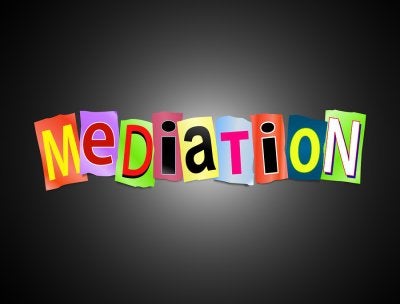-
How an Attorney Can Help with Business Formation
Consulting an attorney in Glen Burnie is an essential first step toward forming your business. An attorney can help you work through key questions that inform the structure of your new company. For example, he or she can help you determine whether a partnership, corporation, s-corporation (S-Corp), or limited liability company (LLC) would be more beneficial. An estate attorney can also help you consider how your estate planning needs may change after you open your doors for business, considering life insurance policies to pay debts of the business, buy-sell agreements with business partners in case one partner predeceases the other, and a partnership agreement. Another reason why you should develop a good working relationship with an attorney while your business is still in the planning stage is that your lawyer can help you strategize the resolution of future disputes, such as by going through mediation or making sure your attorney fees are paid for by the customer if you ever need to sue a customer for non-payment.
Businesses are often affected by federal, state, and local compliance requirements. For instance, if you plan to hire employees, your lawyer can walk you through the process of developing a written workplace discrimination/harassment policy. If you plan to offer your employees retirement benefits, you’ll need to provide required notices to you employees and submit certain governmental filings. An attorney can help your company remain in full compliance.

-
Questions to Confront During Estate Planning
When you consult an estate attorney in Anne Arundel County, you’ll likely bring along a list of your assets and the names of your intended beneficiaries. But estate planning involves much more than deciding when Junior can access his trust fund or who will receive the family’s heirlooms. You can expect your estate planning attorney to ask you plenty of questions about your life, relationships, and even your identifying information.

Who Will Become the Guardian of Minor Children?
One of the most important decisions a parent can make is who should assume guardianship of minor children in the event of the parent’s death. If you are currently in good health, it may seem premature to think about this issue. However, tragedies can happen at any time. You do not want your family and friends going to Court and fighting over who will care for your children. It is better you plan now who can physically care for your children and who can manage his/her assets, which does not necessary have to be the same person.
Who Will Be Designated Secondary Beneficiaries?
Another question you should consider during estate planning is to whom you would like to bequeath your assets in the event that your primary beneficiaries are also deceased. You may even wish to designate tertiary beneficiaries in case of a major disaster. For example, you might assume that you’ll leave everything to your spouse, and in the event that he or she also passes away, your assets will go to your children. In the unlikely situation that a calamity befalls your entire family, you can name a tertiary beneficiary such as a charitable organization.
Are There Any Discrepancies in Identifying Information?
As you might imagine, estate planning involves a great deal of paperwork. Any discrepancies in your identifying information may lead to legal problems later on. One example is a person that changes their name due to a marriage, divorce, or by Court petition. A more recent issue is individuals who are transgender should inform their attorneys if their gender identification is different on documents such as birth certificates. If this applies to you, your estate planning lawyer can guide you through the process of updating your legal records and making sure proper documents can be found for the Personal Representative.
-
Understanding Mediation
Mediation services in Baltimore play an important role in dispute resolution. Mediation is an alternative to litigation when two or more parties cannot reach an agreement on their own. The parties sit down with a mediator, who is a neutral third-party. They discuss the issue, consider proposed solutions, and try to reach an agreement that does not involve having an attorney file a petition or claim in court. The mediator can draft the terms of the settlement into a written document to help prevent future disagreements on that issue.
You can hear more about mediation services by watching this introductory video. You’ll learn about some of the benefits of choosing mediation instead of litigation. You’ll also hear more about the role of the mediator. For instance, the mediator cannot force either party to accept any particular resolution. If either party is dissatisfied with the outcome of mediation, he or she could choose to pursue the matter in court.
-
Breaking Down Myths About Divorce Mediation
Mediation can be an effective way to work toward a mutually agreeable divorce settlement. The mediation process is particularly ideal for spouses who must preserve a working relationship for the sake of their children. Although mediation is frequently used for divorces, plenty of myths about the process persist. If you’re thinking about trying mediation near Baltimore, consider talking to a lawyer about what you can expect.

Myth: Divorce Mediators Are Similar to Family Therapists
Some spouses may hesitate to try mediation because of the mistaken belief that it is similar to marriage counseling or family therapy. However, mediators are not therapists, whose goal in that process is to save the marriage. The goal of mediation is to help the parties facilitate separation, resolve issues related to separation (division of property, division of debt, co-parenting, custody, visitation, child support, alimony, etc.).
Myth: Mediation Lengthens the Divorce Process
One of the most common myths about mediation is that it delays the finalization of a divorce. While this is possible, mediation usually shortens the process. When a divorce proceeding is particularly contentious, hammering out the details in court can take quite a while. On the other hand, if you and your spouse are able to reach an agreement during mediation, the mediator can draft the settlement agreement, which will speed up the divorce process..
Myth: Mediation Precludes the Need to Hire a Lawyer
Actually, lawyers can play a crucial role in mediation services. A lawyer can help you learn about your legal rights before you head into mediation as well as during the mediation process. He or she can help you through the negotiation process, suggest avenues toward settlement, and draft the settlement agreement.
Myth: One Spouse Typically Dominates Mediation Sessions
Not everyone has superb negotiating skills and an assertive personality. Fortunately, the mediation process can work for all types of people. During mediation, the neutral third-party balances the discussion to allow you and your spouse to discuss your respective positions.
Myth: Mediators Can Impose Binding Decisions
The mediation process puts control over the outcome back into the hands of each party. The mediator does not have the authority to force either party to accept a particular outcome. Sometimes, mediation fails to produce a settlement agreement. If the parties reach a roadblock on an issue, the mediator cannot act like a judge or arbitrator and resolve that issue. Instead, the parties will have to submit that issue to a judge to decide.
-
What Are Some of the Common Issues in Child Custody Disputes?
Establishing a child custody, child access, and visitation arrangement (often known as a Parenting Plan) does not need to be a contentious battle. Family mediation serving Anne Arundel County can help the parents reach solutions that work for both households. During mediation, the parents may be reminded that they must come to agreements that are for the child’s best interests, which may not necessarily serve the interests of both parents. The mediation process can help parents resolve a number of disputes.

Decisions for the Child’s Upbringing
Legal custody refers to the parental right and responsibility to make major decisions on behalf of the child. These include decisions regarding the child’s education, health, religion/religious training, and welfare. During mediation, both parents can explain their preferences and goals for the child’s upbringing, and work toward solutions that benefit the child’s well-being. The parties can also define a dispute resolution agenda to help the parties work through future problems should one arise.
Access to the Child
A lawyer may recommend mediation for child custody disputes that involve access to the child. It is becoming more and more common for parties to share custody. Each family is different and there are various schedules such as “week on/week off”, 2/2/3, and many other alternative time sharing on 50/50 access. Even if the parents agree on the child’s primary residence, disputes may still arise regarding the parenting time or visitation schedule. For example, both parents may demand access to the child on holidays, birthdays, and weekends. Since ongoing access to both parents is generally beneficial for children, compromises often involve rotating weekends, holidays, and school vacations.
Access to Information About the Child
Mediation can help the parties think about and agree on how to exchange information about the childnre. Each parent should have unfettered access to school records, medical records, and similar information. In mediation, the parents can agree on appropriate methods of exchanging information and which information should be exchanged. This includes exchanging parent/teacher conferences, doctor’s appointments, report cards, interim reports, activity schedules, etc.
Uniformity of the Homes
Household uniformity is a crucial issue in child custody. Children need stability, regardless of whether are young, tweens, or teenagers. Children who are expected to follow two different sets of household rules, abide by different bedtimes and curfews, and meet two different standards of expectations can become confused, frustrated, resentful, and act out. Children who are in non-divorce homes are good at dividing and conquering parents. Children of divorce are better because parents may not have a good relationship. Mediation can help identify this issue so that the children know the parents are unified even if they are no longer together. By considering these issues during the Parenting Plan stage, the parties will
-
The Role of Mediation in Alimony Agreements
Maryland circuit courts encourage the use of mediation to resolve matters pertaining to family law. Divorce mediation near Glen Burnie is often intended to reach agreements regarding child custody and visitation; however, it’s also a viable option for establishing alimony agreements. A mediator can provide mediation services to help parties establish three different types of alimony.

The first type is alimony pendente lite, also known as temporary alimony. You and your spouse may agree to this type of alimony agreement to maintain the standard of living of both parties while the divorce is pending. It is not uncommon for parties who are unable to resolve all issues for a divorce to make temporary agreements pending the final resolution.
Mediation can also be helpful for establishing an agreement for rehabilitative alimony. This is the most common type of alimony awarded. It is intended to support the spouse of lesser earning capacity or formal education to rehabilitate to help the parties eliminate disparity of income. Usually one spouse will pay the other spouse alimony for a set period of time to allow the other party to complete a degree or vocational training program, or to advance in the workforce.
Less commonly, a spouse may enter into mediation with the goal of obtaining indefinite alimony, which has no distinct ending point. This situation usually occurs when one spouse is a substantial income earner while the other spouse will never be able to reach the same potential.
By using mediation to resolve alimony issues, it gives the parties flexibility and control to resolve this issue which Court does not provide. In Maryland, the Court must look to statutory factors to consider whether to award alimony or deny alimony. By the parties resolving the alimony in mediation, they can look to real issues facing the family, the financial needs and income of each spouse, what is actually needed, and what each party is willing to accept to help support their new dynamic. The parties can also decide whether to make the alimony modifiable or non-modifiable. A court only has the power to make alimony modifiable, which means either spouse could file for a modification at any time in the future (either for an extension or termination). Because no one knows what tomorrow will hold, the parties may agree on how to modify alimony should a party lose a job. The parties can also define when and how the alimony will terminate.
By parties resolving this issue in mediation and without the court intervention, the parties take control of their respective lives and reach a decision he/she can live with. This is better than putting it in the hands of a person you never met before and will never know how his/her decision impacts you and your family.
-
Mediation FAQs: What You Need to Know
The role of mediators in Baltimore is to help parties with differences of opinion resolve disputes. Mediation is an opportunity for two or more parties to meet in a neutral setting to work toward mutually agreeable settlements. If you think you might benefit from mediation services or you would like to learn more about the mediation process , you can contact an attorney for guidance.

When is Mediation Appropriate?
Mediation is appropriate for many types of cases. It is commonly utilized in family law matters. In fact, in most cases a court will require divorcing individuals to participate in mediation. It’s common for mediators to guide discussions pertaining to child custody, child access, and visitation schedules . Mediators can also help parties settle alimony and marital asset division. However, mediation services are not confined to family law. Mediation is often helpful in the corporate world, such as when two business partners have a dispute, employee disputes, and probate/trust disputes.
When is Mediation Best Avoided?
Although mediation can be effective in resolving disputes, there are certain cases in which it might not be appropriate. If one of the parties has a history of domestic violence or abuse, it is not unreasonable to assume that the other party may not wish to engage in discussions. However, sometimes domestic violence cases can be mediated by everyone participating on telephone so that each party feels safe.
Can the Mediator Impose a Mandatory Agreement?
In arbitration, an arbitrator hears both sides of the case and then makes a binding decision, which the parties may not necessarily agree with. Mediation services are different. The mediator does not take sides, nor does he or she issue a decision. It’s the role of the mediator to help both parties explore the issues, consider what may or may not happen in court, develop solutions, and come to an understanding. Mediation doesn’t always result in a settlement. If the parties cannot agree, the issues may be decided in court.
How Can I Prepare for Mediation?
You can consult an attorney for assistance preparing for mediation. You may find it helpful to discuss what the issues are, what are possible outcomes (both good and bad) if your situation went to Court, your legal rights, and what you might expect from the process. By reviewing the issues at hand, you will be able to clearly articulate your position at mediation. Remember that successful mediation sessions involve civil and mutually respectful communication as well as an open mind to resolve the dispute.
-
Understanding Living Wills/Advance Medical Directives
If you haven’t yet created your living will or advance medical directive in Baltimore, it’s time to meet with an attorney. An advance medical directive is an essential component of the estate planning process. An estate lawyer can create this legal document for you in accordance with your wishes. Unlike a last will and testament, an advance medical directive goes into effect while you’re still alive, yet unable to make medical decisions for yourself . This is not just for end of life decisions, but also for ordinary medical situations when you are unable to speak for yourself due to illness or injury. Should it become determined that you are at the final stage of your life, then the second part of the advance medical directive, living will, becomes effective. This document will guide your family and friends on what decision you would want them to make for you.
To hear more about advance medical directives and living wills, watch this video or consult an estate planning attorney. This video explains how a living will can be used to ensure that your preferences are fulfilled regarding life support and other medical treatments in the event that you become incapacitated.
-
How Should You Handle Debt During Your Divorce?
You may already know that divorce mediation can resolve matters such as property division. But did you know that divorce mediation near Baltimore may also cover liability division? As your attorney can advise you, a person can be held liable for the debt of his or her former spouse, even if that debt was only listed under the spouse’s name. Before entering mediation, talk to your attorney about indemnity agreements, marital debt, and non-marital debt.
As you’ll learn when you watch this video, an indemnity agreement can protect you from debt liability. This video also recommends taking some other steps prior to entering into mediation and finalizing your divorce, such as closing or freezing all accounts held jointly with your spouse.
You may also wish to consult with an divorce attorney with experience regarding bankruptcy. Some spouses are known to enter into these indemnity agreements and then file bankruptcy.
-
When Is Mediation the Best Choice for Your Dispute?
Alternative dispute resolution isn’t an option for all cases, such as those involving criminal charges. However, for many types of civil disputes, mediation may offer an ideal alternative to going to court. Consider talking to a lawyer about undergoing mediation near Anne Arundel County to resolve matters pertaining to divorce, marital assets, child custody, business disputes, and employment disputes.
When You Need to Preserve a Relationship
Disputes often arise between individuals who need to find a way to set aside their emotional differences and develop mutually agreeable solutions for the sake of preserving a working relationship. For instance, if you and your business partner have differences of opinion regarding the operation of the company, mediation may help both of you resolve these matters in an amicable fashion that allows for continuation of the partnership. If you are planning on dissolving the business, mediation is less costly resolution on how to wind down the company plus preserve the relationship if you ever need a referral or help from your partner in the future. Child custody cases can also benefit from mediation. By necessity, divorcing or separating individuals must continue to have a working relationship when they share children in common. It’s in the children’s best interests to see that their parents are working together cooperatively, both during and well after mediation. Additionally, mediation for child custody matters allows both parents to share their concerns for their kids and to get on the same page regarding childrearing decisions. Mediation can help begin rebuilding the relationship between Mom and Dad so that they can help raise their child into adulthood as well as present positive role model for him or her.
you ever need a referral or help from your partner in the future. Child custody cases can also benefit from mediation. By necessity, divorcing or separating individuals must continue to have a working relationship when they share children in common. It’s in the children’s best interests to see that their parents are working together cooperatively, both during and well after mediation. Additionally, mediation for child custody matters allows both parents to share their concerns for their kids and to get on the same page regarding childrearing decisions. Mediation can help begin rebuilding the relationship between Mom and Dad so that they can help raise their child into adulthood as well as present positive role model for him or her. When You Prefer to Retain Control Over the Outcome
Lawyers who are well-versed in the mediation process often recommend this approach to clients who are hesitant to turn over full decision-making powers to a judge. When a matter goes to trial, an attorney can make prediction of what can happen, but he or she cannot guarantee. Also, rarely does a party walk out of court happy as judges like to do what he/she believes is fair.Mediation returns control back to the parties so that they can reach a settlement they are satisfied with and know they had a hand in reaching. It isn’t practical for an individual to expect that he or she will get everything he or she desires out of mediation, since successful mediation often does require both parties to make compromises.
When the Parties Struggle with Negotiation
Mediation can provide an ideal forum for negotiation, particularly when the involved parties have difficulty beginning their negotiations. A neutral mediator can also help the parties move forward from an impasse in negotiations. A mediator can help focus the parties on the impasse and help the parties recognize their common ground to move on. A mediator can also provide a neutral evaluation of the strength and weaknesses of each side should the matter go to trial as well as possible outcomes by the court. One example of helping parties move pass an impass is in the dissolution of a business. Courts do not want to determine who gets which desk and chair and will likely appoint a trustee to sell all the assets. In mediation, business partners can negotiate the division of company assets including the tangible assets such as computers, desks, and chairs, as well as intangible assets of who gets which clients, contracts, and intellectual property.

